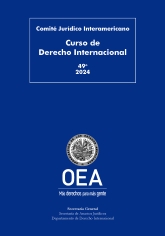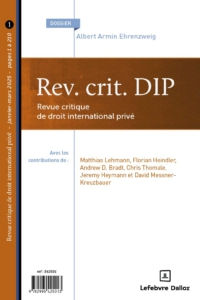HCCH Monthly Update: June 2025
Conventions & Instruments
On 17 June 2025, the Republic of Korea deposited its instrument of ratification of the 1993 Adoption Convention. With the ratification of the Republic of Korea, the 1993 Adoption Convention now has 107 Contracting Parties. It will enter into force for the Republic of Korea on 1 October 2025. More information is available here.
On 30 June 2025, Denmark signed the 2007 Child Support Convention and deposited its instrument of approval of the Convention. With the approval of Denmark, 55 States and the European Union are bound by the 2007 Child Support Convention. It will enter into force for Denmark on 1 October 2025. More information is available here.
Meetings & Events
On 5 June 2025, the first meeting of the Working Group established to finalise the Good Practices document relevant to the 1965 Service, 1970 Evidence, and 1980 Access to Justice Conventions was held online, hosted by the Permanent Bureau. More information is available here.
On 13 June 2025, the Working Party on Cross-Border Family Mediation in the Context of the Malta Process met online. More information is available here.
From 16 to 18 June 2025, the Experts’ Group on Digital Tokens met for the first time. More information is available here.
From 25 to 27June 2025, HCCH Asia Pacific Week 2025 was held in Seoul, co-hosted by the Republic of Korea and the HCCH. The conference brought together over 400 participants from across Asia and the Pacific and beyond for wide-ranging discussions on the most recent developments relating to the HCCH’s key Conventions and instruments, ongoing normative projects, and possible future work. More information is available here.
Other Developments
On 2 June 2025, the Host Seat Agreement between Morocco and the HCCH was signed in Rabat, establishing the Regional Office for Africa of the HCCH. More information is available here.
These monthly updates are published by the Permanent Bureau of the Hague Conference on Private International Law (HCCH), providing an overview of the latest developments. More information and materials are available on the HCCH website.



 Written by Hadrien Pauchard (assistant researcher and doctoral student at Sciences Po Law School)
Written by Hadrien Pauchard (assistant researcher and doctoral student at Sciences Po Law School)